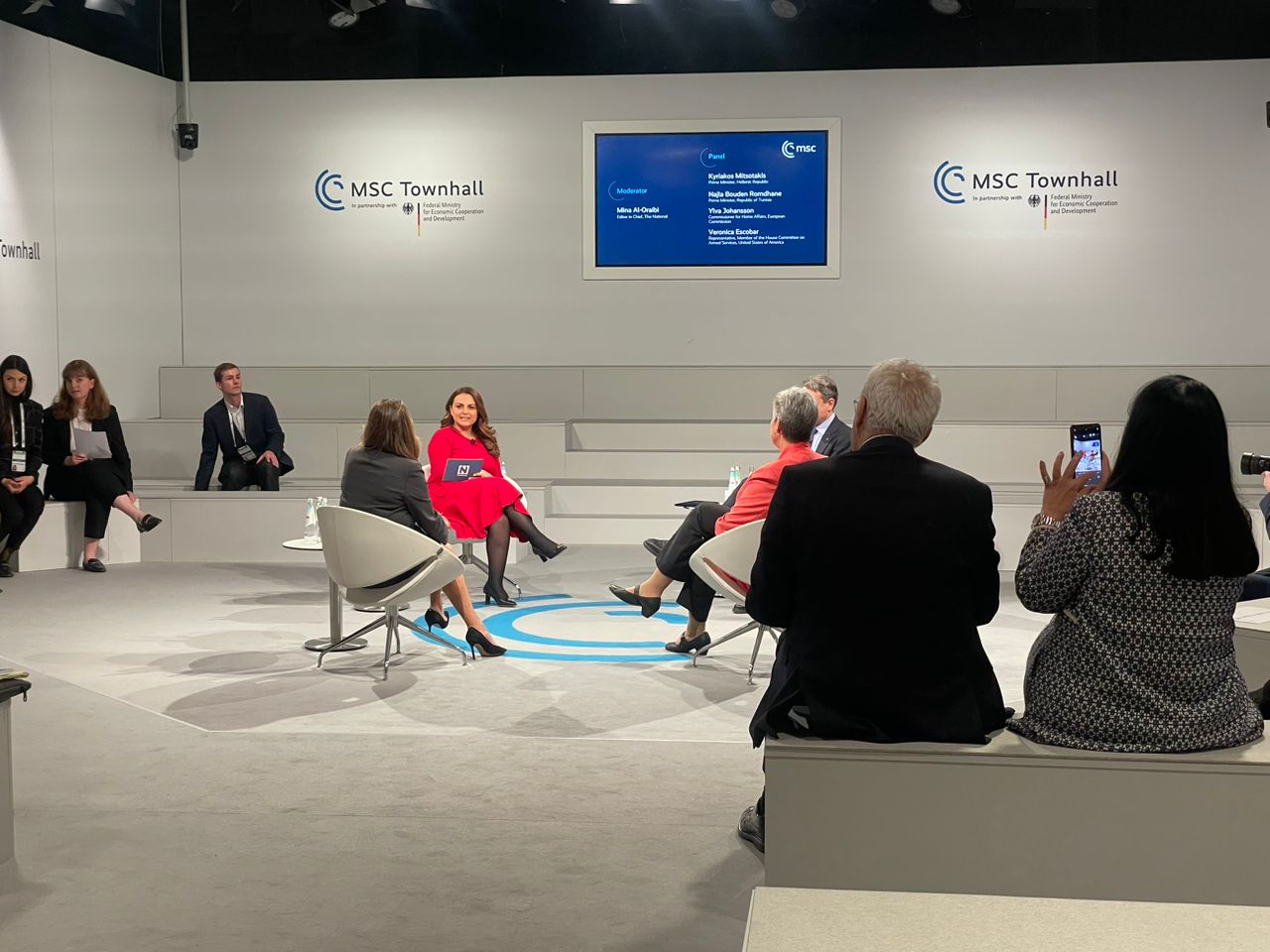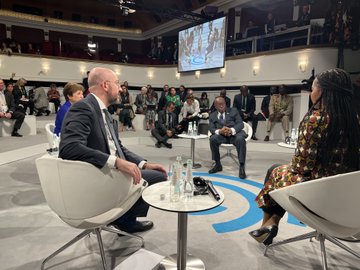His Excellency Nana Addo Dankwa Akufo-Addo, President of the Republic of Ghana, has appealed to global lenders, the World Bank and International Monetary Fund (IMF) for international cooperation in crisis periods.
According to the President, there must be political will in order to bridge the gap between the global north and south, highlighting the crucial work being done by the IMF under its current management to reorient itself to address the problems of its many constituent elements.
Akufo-Addo urged the two institutions to serve as bridges for developing countries in order to be given access to funds needed for long-term development.
This message by the President followed after Charles Michel, President of the European Council (EC)’s prior appeal for international cooperation. This was during his speech at the Munich Security Conference (MSC), 2023 held in Germany last Friday, February 16th, 2023.
President Akufo-Addo, in his delivery, stressed on the importance of the critical role these international bodies play at the international level during difficult times, as well as the difficulties that African countries face during global security threats, such as the COVID-19 pandemic; during which African countries were left to fend for themselves due to a lack of vaccine access.
Developed nations’ resistance to providing vaccines to people beyond their borders during the pandemic reflected in their response to the harm the Russian-Ukrainian conflict was doing to the world’s financial and economic system and the degree to which Africans were left to fend for themselves, Nana Addo said.
The President spoke at the Opening Town Hall Session of the 59th MSC 2023, titled: “Recalibrating the Compass: South-North Cooperation.”, where he was invited together with other dignitaries such as Charles Michel, President of the European Council (EC); Bill Gates, Co-founder of the Bill and Melinda Gates Foundation; and Kristalina Georgieva, Managing Director of the IMF.

President Nana Addo held separate bilateral meetings with German Chancellor Olaf Scholz and Ms. Kristalina Georgieva, during a breakout session during the conference.
The Munich Security Conference
The Munich Security Conference (MSC) is the world’s leading forum for debating international security policy and a venue for diplomatic initiatives aimed at addressing the world’s dire security concerns.
The conference is hosted by the MSC Foundation, an annual non-official government, that brings together high-level decision-makers from around the world to engage in intensive debates on current and future global significance.
During its main conference, usually held in February, MSC brings together 450 senior decision-makers as well as thought leaders from around the globe including: Heads of State and Government, Ministers, leading personalities of international and non-governmental organizations, as well as high-ranking representatives of industry, media, academia, and civil society.

The core objective of the conference is to build trust and contribute to the peaceful resolution of conflicts by sustaining a continuous, curated and informal dialogue hosted within the international security community.
The recent conference’s discussions rightly focused on classic security risks that were returning to the international spotlight, such as the Russia-Ukraine war, as well as non-traditional dangers like the climate crisis and issues of food and health security.
In more than five decades, the MSC has been constantly evolving. It was, is and still will be an independent meeting place for politicians and experts to exchange views on very pertinent issues.
MSC is sponsored by various institutions, authorities and organizations like APCO Worldwide, Atlantic Council, Brookings, Center for Strategic and International Studies, European Council On Foreign Relations, Rockefeller Brothers Fund, Robert Bosch Stiftung, World Food Programme, YouTube, amongst others.
READ ALSO: GMet Cautions Public Over Dusty Weather Conditions







